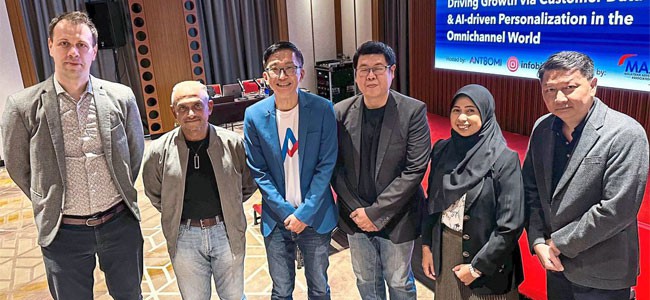DURING a recent panel discussion on the revamped content code, questions were asked about its ability to remain relevant amidst the fast-paced evolution of marketing and advertising as we see today.
The need for the content code, as with all codes, regulations and guidelines that regulate marketing, should always be “living codes” that evolve according to technological advancements, cultural acceptance and societal maturity of the times, and not commandments carved in stone.
It had to be acknowledged that the revisions, addendums and updates of regulations and guidelines would not be able to keep pace with the speed of change in the world today.
However, if we instead revert to the preamble of the content code and its guiding principles – there will always be a path to true north, come what new practices, mediums and technologies tomorrow brings.
This same essence is rooted too in the older Malaysian Code of Advertising Practice (MCAP or ASA Code) the other self-regulatory code of conduct that once moderated all advertising practice, before the content code’s introduction divided advertising governance by medium of transmission and not necessarily how it functioned – but will leave my advocacy for a unified common code of advertising for another day.
On January 19, Prime Minister Datuk Seri Anwar Ibrahim introduced us to Malaysia Madani, a vision of a civilised, skilled and inclusive society, built on six core values – sustainability, prosperity, innovation, respect, trust and compassion.
The Madani values are principles derived from Islamic teachings that emphasise virtues such as honesty, integrity, compassion, and respect for others.
Placed in the context of marketing and business in general, they promote a culture of ethical and responsible behaviour, which is particularly relevant for businesses seeking to grow beyond these shores and build sustainable brands that stand the test of time.
These are the very tenets entrenched within the preamble and guiding principles of the content code, in fact, the very first lines of the preamble of the ASA Code spells it out.
I. Preamble
1.1 All advertisements should be legal, decent, honest and truthful.
This is followed by its second line:
1.2 Advertisements must project the Malaysian culture and identity, reflect the multiracial character of the population and advocate the philosophy of Rukunegara which reads:
Belief in God
Loyalty to King and Country
Upholding the Constitution
Rule of Law
Good Behaviour and Morality
The essence of the codes that empower us as businesses, brands and marketers to regulate our own advertising and marketing practices in Malaysia therefore, have from their very infancy in the 1970s, been based on these very foundations of a vision for a true, honest, compassionate, respectful and progressive Malaysian community.
The individual codes are there only to shed clarity on particular areas. They serve as guardrails for us marketers and brand owners, to ensure that while we have the liberty to use the power of marketing to succeed while the rights of consumers are protected too.
In principle, we would not need the rest of the codes if we simply stay true to the preamble and guiding principles of these codes in self-regulating whatever we do, that would however take a cultural maturity that’s utopian – in which case, we would likely not even need regulations at all as it would already be in our very nature to do the right thing.
Sadly, however, we are nowhere near to this, and as such, require the regulations and guidelines to show us the path towards the light.
While a majority of advertisers are aware of the regulations and do make every effort to comply with them in practice, the sheer number of businesses in the micro, small and medium enterprise (MSME) sector in Malaysia means there is a perpetual flow of new entrants participating in marketing and advertising activities, who are often oblivious to the existence of these codes and practices – till they run afoul of them and are reprimanded.
The nature of self-regulation is not about being policed, however, but rather for us to be righteous in our activities, with the codes serving as a point of reference.
There is a huge challenge in disseminating knowledge of the regulations, codes and guidelines that moderate our marketing and advertising messaging, and though it is the responsibility of regulators, such as the Communications and Multimedia Content Forum (CMCF), the Advertising Standards Advisory of Malaysia (ASA), Lembaga Penapisan Filem, Dewan Bahasa dan Pustaka and other such bodies to raise awareness for them, each of us is empowered with the ability to impact our own circles of influence.
So, it is our shared responsibility to collectively do our part, to raise awareness too.
As a constituent member of both ASA and CMCF, the Malaysian Advertisers Association (MAA) believes in the role it has to play in spreading awareness of the regulations and as a proponent of self-regulation, actively engages both its members as well as advertisers that are outside its members pool to ensure that we can be a conduit to bring more brands, especially amongst the MSME sector, to the light.
Collectively, however, there needs to be a move towards looking at the greater good over self-interest, and this is what the principles of Madani being incorporated into brand-building strategies and marketing messages enables. It will ensure that you most definitely will stay the course of the codes at the very least.
These are values that will not go unnoticed by our consumers too, and will have a more lasting effect in establishing long-term relationships with them that extends beyond merely transactional, creating a deeper emotional connection that is conducive to brand loyalty and advocacy.
In the age of digital and social media, this is particularly important, as consumers are not just increasingly savvy and have access to a wealth of information about brands and their practices, but are equally able to influence their peers!
Adapting the values of Madani in our marketing practices offers an unique and powerful approach to building a stronger footing for ethical and responsible practices and behaviour. Above all else, it will endear brands and businesses to consumers far more than any false claims, faked endorsements or treacherous guarantees.
Claudian Navin Stanislaus is president of the Malaysian Advertisers Association
*Source from The Vibes – 6th May 2023



